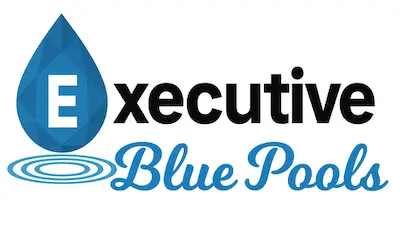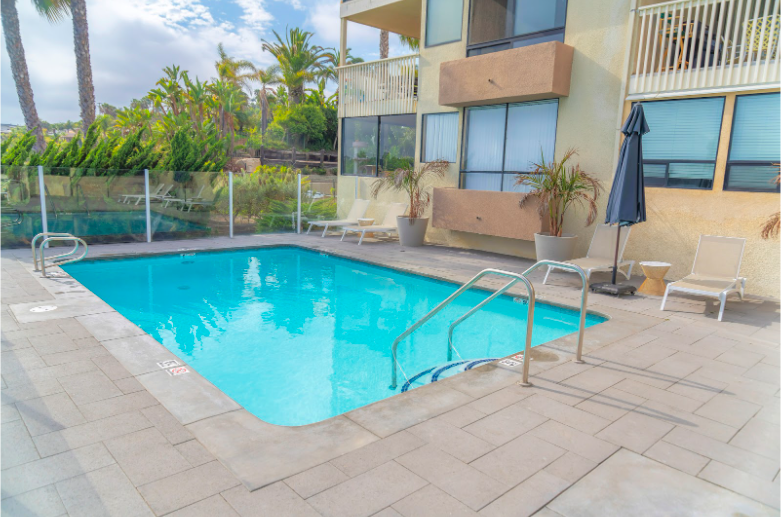
As a responsible pool owner, you know that maintaining a clean, safe, and functional swimming pool is a top priority. One crucial aspect of pool maintenance that often goes overlooked is proper pool drainage. A well-designed and maintained pool drainage system is essential for protecting your investment, ensuring the longevity of your pool, and keeping your family and friends safe.
Executive Blue Pools, a leader in the pool service industry, specializes in ensuring your pool remains in top condition. With years of expertise, they provide comprehensive pool maintenance solutions, including expert pool drainage services, to safeguard your pool and enhance its lifespan. This pool cleaning company is dedicated to delivering top-notch service and quality.
Explore the essential aspects of proper pool drainage, from its significance and common issues to best practices for maintaining an efficient drainage system. Learn how Executive Blue Pools’ experience and commitment to quality can help you maintain a safe and well-functioning pool.
What is a Pool Drainage System?
Before we explore the importance of proper pool drainage, let’s first define what a pool drainage system is. In simple terms, a pool drainage system is a network of pipes, channels, and drains that work together to remove water from your pool and direct it away from the pool area. This system is designed to prevent water from accumulating around the pool, which can lead to a host of problems, such as erosion, structural damage, and even health hazards.
A typical pool drainage system consists of several key components:
- Skimmers: These are the rectangular openings along the pool’s edge that draw water from the surface, removing debris and contaminants.
- Main drains: Located at the bottom of the pool, main drains help to circulate water and prevent stagnation.
- Pumps: The heart of the pool drainage system, pumps are responsible for drawing water through the system and pushing it through the filters.
- Filters: These essential components remove fine particles and contaminants from the water, keeping it clean and clear.
Why Proper Pool Drainage Matters
Now that we have a basic understanding of what a pool drainage system is, let’s explore why proper pool drainage is so important.
1. Preventing Structural Damage
One of the most significant reasons to prioritize proper pool drainage is to prevent structural damage to your pool. When water is allowed to accumulate around the pool’s foundation, it can lead to erosion, shifting, and even cracking. Over time, this can cause serious damage to your pool’s structure, requiring costly repairs or even complete replacement.
A well-designed pool drainage channel helps to direct water away from the pool’s foundation, minimizing the risk of structural damage. By investing in a quality pool drainage system and maintaining it regularly, you can protect your pool and avoid expensive repairs down the road.
2. Maintaining Water Quality
Another crucial aspect of proper pool drainage is maintaining water quality. Without an effective swimming pool drainage system, contaminants like dirt, debris, and chemicals can accumulate in your pool, leading to murky water and potential health hazards.
A functioning pool drainage system helps to circulate water through the filters, removing impurities and keeping the water clean and clear. This not only makes your pool more inviting and enjoyable to use but also helps to prevent the growth of harmful bacteria and algae. For comprehensive care, consider swimming pool cleaning services to ensure your pool remains in pristine condition.
3. Ensuring Safety
Proper pool drainage is also essential for ensuring the safety of your family and friends. When water accumulates on the pool deck or surrounding areas, it can create slip and fall hazards, particularly for children and elderly individuals.
A well-designed pool deck drainage system helps to quickly and efficiently remove water from the deck surface, reducing the risk of accidents and injuries. By prioritizing pool deck safety, you can create a more secure and enjoyable environment for everyone who uses your pool.
Common Pool Drainage Issues and How to Address Them
Even with a quality pool drainage system in place, issues can still arise. Here are some common pool drainage problems and how to address them:
1. Clogged Drains
Over time, debris like leaves, twigs, and small objects can find their way into your pool’s drains, causing blockages that prevent water from flowing freely. Clogged drains can lead to poor circulation, stagnant water, and even damage to your pool’s pumps and filters.
To prevent clogged drains, regularly inspect your pool’s skimmers and main drains, removing any visible debris. If you suspect a blockage, use a pool vacuum or a plumber’s snake to clear the obstruction. In more severe cases, you may need to enlist the help of a professional pool technician.
2. Inadequate Drainage Around the Pool Deck
If you notice water accumulating on your pool deck or in the surrounding areas, it may be a sign that your pool deck drainage system is inadequate. Poor deck drainage can lead to slip and fall hazards, as well as damage to your landscaping and pool foundation.
To address this issue, consider installing a more effective pool deck drainage system, such as a French drain or a surface drain. These systems are designed to quickly and efficiently remove water from the deck surface, directing it away from the pool area.
3. Leaks in the Pool Drainage System
Leaks in your pool drainage system can be a serious problem, leading to water loss, poor circulation, and even structural damage to your pool. If you suspect a leak, it’s essential to act quickly to minimize the potential for harm.
Some signs of a leak in your pool drainage system include:
- A sudden drop in water level
- Wet spots or pooling water around the pool area
- High water bills
- Air bubbles in the pool water
If you notice any of these signs, contact a professional pool technician to diagnose and repair the leak. Consider using pool leak detection services to identify and address leaks efficiently.
Best Practices for Pool Drainage Maintenance
To keep your pool drainage system functioning at its best, it’s essential to follow a regular maintenance routine. Here are some best practices for pool drainage maintenance:
1. Skim and Brush Regularly
One of the easiest and most effective ways to prevent pool drainage issues is to skim and brush your pool regularly. Skimming helps to remove debris from the water’s surface before it has a chance to sink and clog your drains, while brushing helps to prevent the buildup of algae and other contaminants on your pool’s walls and floor.
Aim to skim your pool at least once a day and brush it weekly, paying extra attention to hard-to-reach areas like corners and steps.
2. Clean Your Filters
Your pool’s filters play a crucial role in maintaining water quality and ensuring proper pool drainage. Over time, filters can become clogged with dirt, oil, and other contaminants, reducing their effectiveness and putting a strain on your pool’s pumps.
To keep your filters functioning at their best, clean them regularly according to the manufacturer’s instructions. Depending on the type of filter you have, this may involve backwashing, removing and cleaning the cartridges, or replacing the sand.
3. Schedule Professional Inspections
While regular maintenance can go a long way in preventing pool drainage issues, it’s still a good idea to have professional inspections at least once a year. A trained pool technician can identify potential problems with your pool drainage channel, pumps, and filters, and make recommendations for repairs or upgrades as needed. For a more comprehensive overhaul, consider pool renovations to enhance both the functionality and aesthetics of your pool.
During an inspection, a technician may:
- Test your pool’s water chemistry
- Inspect your pool’s structure for signs of damage or wear
- Check your pool drainage system for leaks or blockages
- Assess the condition of your pool’s pumps, filters, and other equipment
By catching potential issues early, you can often avoid more serious and costly problems down the line.
Conclusion
Proper pool drainage is a critical aspect of pool ownership that should never be overlooked. By investing in a quality pool drainage system, maintaining it regularly, and addressing issues promptly, you can protect your investment, ensure the longevity of your pool, and keep your family and friends safe.
Take the first step towards creating your own backyard paradise. Contact us today at 469-340-2757 to schedule your consultation. Let’s make a splash together!
If you enjoyed this article, check out these other articles regarding Pool Maintenance:
What's the Best Pool Water Temperature in Frisco?
Why Spring is the Best Time for Pool Maintenance and Repairs in Plano, TX


